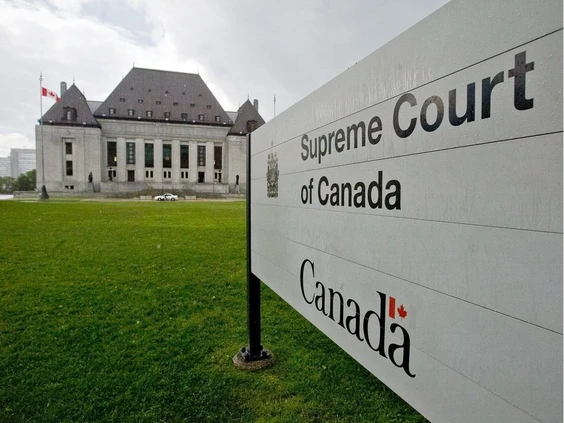
Brandon Harder
Regina Leader-Post
The case of Soon Hyong Kwon, who was accused, twice convicted, and then acquitted of sexual assault, has now been appealed at the Supreme Court of Canada (SCC).
Kwon, a Korean man who is a permanent resident of Canada, lived in Grenfell, Sask. in 2015 when the incident was alleged to have occurred. He operated the bar in the town of around 1,000 residents, some 126 kilometres east of Regina.
In the early hours of March 21 that year, he gave a ride home to a patron, a married woman who was a regular in the establishment. It was alleged he sexually assaulted her on the way to her home, which was out of town.
She testified she didn’t remember the sexual encounter, but wouldn’t have consented. He testified she propositioned him, and he questioned her to see if she was agreeing to sex before he proceeded.
He was convicted in 2018 by a judge of what was then the Saskatchewan Court of Queen’s Bench. That conviction was set aside by the Saskatchewan Court of Appeal, which ordered a new trial. He was convicted again by a judge of the lower court in 2022. He appealed yet again, and Saskatchewan’s top court again set aside his conviction, this time substituting an acquittal, in a split decision.
The Crown appealed the decision from the majority, filing a notice of appeal with the SCC in June 2024.
“The Saskatchewan Court of Appeal erred by entering an acquittal on the ground that there was no evidence on which a properly instructed trier of fact could reasonably convict,” the document asserts.
(In a criminal trial, a trier of fact refers to either a judge or a jury.)
The case is one that engages a number of issues, including consent, capacity to consent, and the nuances of navigating a language barrier.
The Saskatchewan Court of Appeal judges unanimously found multiple errors in the lower court’s most recent conviction of the man. However, it was on the aforementioned point referenced by the Crown in its appeal to the SCC where Justice Justice Jerome Tholl disagreed with his colleagues, Justices Jill Drennan and Brian Barrington-Foote, who both wrote for the majority.
The majority wrote that the trial judge who most recently convicted Kwon rejected his evidence, and as the complainant had no memory of the alleged assault, the trial judge decided the case on circumstantial evidence.
In this case, such evidence included the complainant’s testimony about what she did remember, and testimony from other witnesses regarding her level of intoxication.
In a case turning on circumstantial evidence, for a judge to convict a person, they must be satisfied that no reasonable inference other than guilt is available on the evidence. In this case, the trial judge found the complainant did not have the capacity to consent.
The complainant, the majority wrote, “may have been capable of consenting at the time of the sexual encounter and may have consented, making a choice that she would not have made had she been sober. That theory is no more speculative than the inference drawn by the trial judge.”
“It is, based on the evidence and lack of evidence, a reasonable alternative explanation that could not be reasonably excluded by a trier of fact, acting judicially. This means that there was no legally admissible evidence upon which a properly instructed trier of fact could reasonably have convicted. The conviction was accordingly unreasonable and an acquittal must be entered.”
Tholl disagreed with his colleagues on this point. While he agreed Kwon’s appeal should be allowed, he said he would have granted another new trial, not an acquittal.
“While the trial judge’s findings are tainted by the errors identified by my colleagues with which I have agreed, it is my view that a new trier of fact, based on the same evidence, could arrive at the same findings of fact upon which the guilty verdict was rendered in this case,” he wrote, placing emphasis on the word could.
Tholl wrote this is “particularly apparent” based on the trial judge’s findings that the woman was drifting in an out of consciousness at the time of the alleged assault, and her very limited memories surrounding what the trial judge decided “can only have been vigorous sexual activity.”
A person in “such a state of consciousness,” Tholl wrote, would not be capable of the understanding legally required for a person to give consent.
It is not yet clear what the Crown’s specific arguments will be on its appeal at the SCC.

